In the world of video games, the journey is often just as important as the destination.
Yet, every now and then, a game’s ending comes along that leaves players utterly stunned, reeling from unexpected twists, revelations, and emotional gut punches.
These are the surprise video game endings that defy expectations, challenge conventional storytelling, and remind us of the incredible narrative potential of interactive media.
These conclusions are the culmination of immersive storytelling, creative brilliance, and the sheer audacity to defy predictability.
From shocking plot twists to moral dilemmas that linger long after the screen fades to black, these endings will take you on a rollercoaster ride of emotions and leave you questioning the boundaries of what video games can achieve in the realm of storytelling.
Get ready to relive some of the most surprising and unforgettable endings in gaming history.
Here’s seven surprise video game endings that took us by surprise, defying our expectations and leaving us in awe.
WARNING: Here there be spoilers.
BioShock (2007):
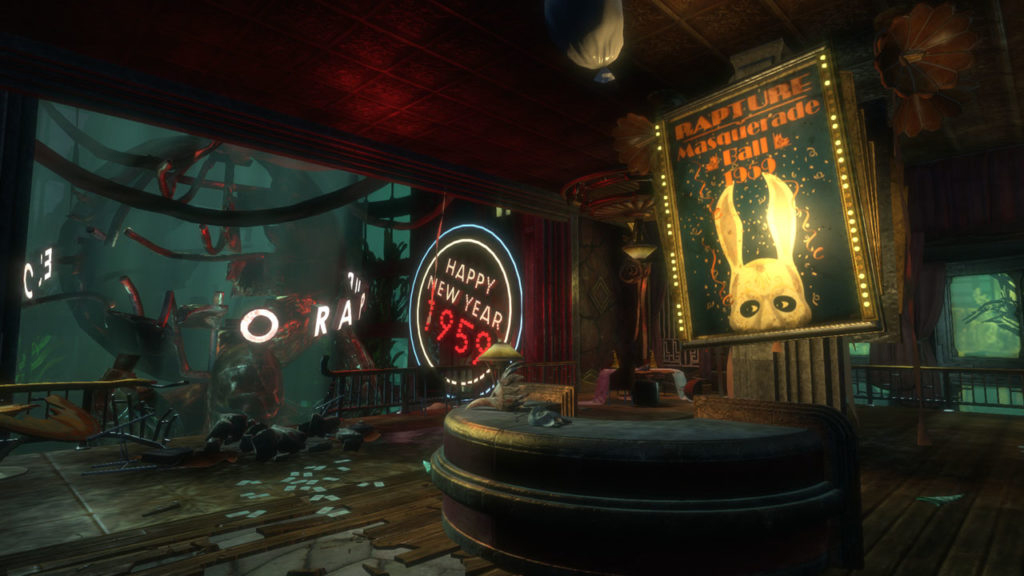
BioShock, the 2007 masterpiece from Irrational Games, is a prime example of this principle.
As players ventured into the depths of the underwater city of Rapture, they were treated to a twist-filled narrative that kept them on the edge of their seats.
However, it was the game’s ending that truly left players in awe.
From the moment players set foot in Rapture, they were thrust into a world of mystery, intrigue, and moral ambiguity.
The city, once a utopian dream, had descended into chaos, with its citizens mutated and driven to madness by their unchecked pursuit of scientific advancement. The atmosphere was oppressive, and the narrative was laden with secrets waiting to be unraveled.
As players delved deeper into Rapture’s dark secrets, they encountered Andrew Ryan, the charismatic founder of the city. Ryan’s presence loomed large throughout the game, and players couldn’t help but wonder about his true motives.
The surprise came when, in the climactic moments of the game, players discovered that Ryan had been manipulating them all along.
The revelation that players had been pawns in Ryan’s grand scheme was a jaw-dropping moment.
It turned the entire narrative on its head, making players question their own agency and the nature of their choices throughout the game.
It was a twist that challenged the very foundations of video game storytelling.
One of the reasons the ending of BioShock was such a surprise was because it forced players to confront the moral complexity of their actions.
The choices they had made throughout the game, which had seemed clear-cut, were suddenly cast in a new light.
Were they really acting of their own free will, or were they merely following a path predetermined by the game’s narrative?
The ending of BioShock taught us that video games have the power to deliver storytelling experiences that rival those of other mediums.
It showed that a surprise ending could be as impactful in a game as it is in a film or a book.
It challenged the notion that games are just about shooting, jumping, and collecting items.
They can also be about deep, thought-provoking narratives.
BioShock was unlike any other game at the time.
It was a first-person shooter that dared to be more than just a mindless action experience.
It demanded players to think, to question, and to grapple with complex moral dilemmas. The ending was the culmination of this subversion of expectations.
The original Bioshock game is available to play on the Xbox, Playstation, Switch, or Steam.
Red Dead Redemption (2010):
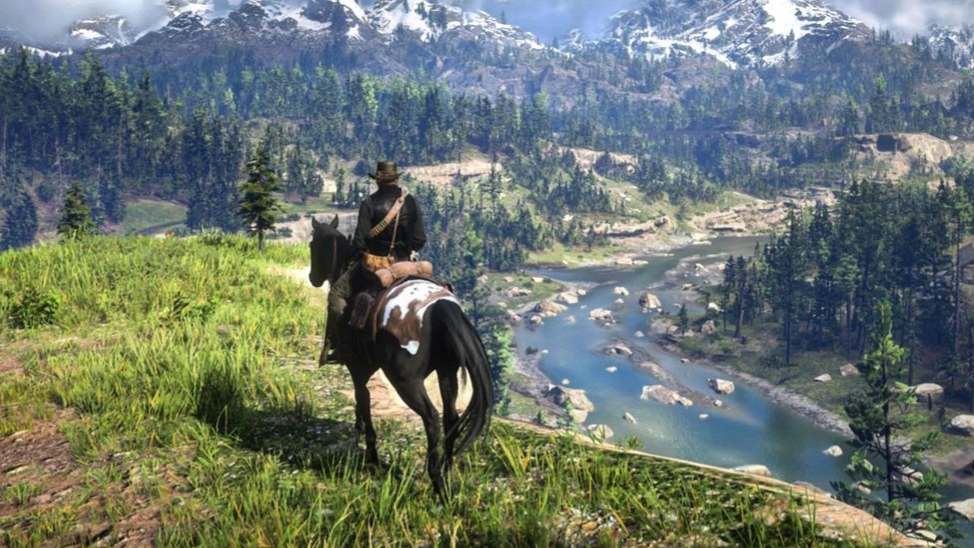
Rockstar Games’ Red Dead Redemption is hailed as one of the greatest video games of all time, offering players a gripping narrative set in the harsh and unforgiving landscape of the American Wild West.
Beyond its captivating storytelling and meticulously crafted world, what sets the game apart is its surprise ending, a masterful narrative twist that took players by surprise.
The game, set in 1911, casts players in the role of John Marston, a former outlaw seeking redemption for his past crimes.
Marston’s journey takes him through the wild and lawless West as he hunts down his former gang members, striving to secure his family’s safety.
Throughout this arduous journey, players are led to believe that Marston’s ultimate goal is to reunite with his family and find peace.
As players navigate through the game’s intricately woven narrative, they encounter a diverse cast of characters, each with their own motivations and moral compass.
The plot unfolds in a way that seemingly builds towards a traditional climax—a showdown between Marston and his former gang leader, Dutch van der Linde.
This expected confrontation keeps players on the edge of their seats as they anticipate a final reckoning.
However, “Red Dead Redemption” takes a bold and unexpected turn in its final moments.
After a climactic battle with Dutch, Marston is reunited with his wife and son.
It’s at this point that players are taken aback as they realize that the story is far from over.
The shocking twist comes when the government, which Marston had been reluctantly assisting throughout the game, betrays him and his family.
The government, represented by the morally ambiguous Edgar Ross, reveals its true intentions.
Instead of granting Marston the peaceful life he was promised, they demand that he eliminate the remaining members of his former gang, or his family will be in grave danger.
The climax of Red Dead Redemption is not a triumphant showdown but a heartbreaking sacrifice.
Marston, in an attempt to protect his family, confronts his former comrades, leading to a tragic and inevitable outcome.
The game’s poignant ending sees Marston standing alone against insurmountable odds, his journey for redemption culminating in a tragic but poetic manner.
Red Dead Redemption shocked players with its unexpected conclusion because it defied the conventions of the Western genre.
It challenged the traditional notion of justice, redemption, and closure in storytelling.
Instead of a heroic showdown and a happy ending, players were left with a bittersweet conclusion that explored themes of sacrifice and the consequences of one’s actions.
Red Dead Redemption is available to play on Xbox, PlayStation and Switch.
Metal Gear Solid 2: Sons of Liberty (2001):

Metal Gear Solid 2: Sons of Liberty is renowned not only for its innovative gameplay but also for its intricate and thought-provoking narrative.
Released in 2001, the game surprised fans and critics alike with an ending that subverted expectations and left players questioning the very nature of storytelling in video games.
When Metal Gear Solid 2 was first announced, fans of the series were excited to step into the shoes of Solid Snake once again.
The charismatic and battle-hardened protagonist had become an iconic figure in the gaming world.
However, the game’s initial hours had players controlling a new character named Raiden, raising eyebrows and generating curiosity.
As the game progressed, players were thrown into a world that felt both familiar and strange.
The setting and gameplay mechanics resembled those of the previous title, Metal Gear Solid, but there was an undeniable sense of dissonance.
The story took unexpected twists and turns, and players soon realized that something was amiss.
The shocking moment came during the game’s final act when Raiden confronts the game’s primary antagonist, Solid Snake, on top of a skyscraper.
In a surreal and mind-bending sequence, it is revealed that much of the game’s events were orchestrated by a shadowy organization known as the Patriots.
The Patriots control information, manipulate events, and shape the world from behind the scenes.
The true revelation, however, is that Raiden’s entire mission, and by extension, the player’s experience, was an experiment designed to replicate the events of the first Metal Gear Solid game.
Raiden’s actions were guided by an AI named GW, and the player’s choices were ultimately meaningless in the grand scheme of things.
The ending of Metal Gear Solid 2 surprised fans by subverting their expectations in multiple ways.
It challenged the notion of a traditional video game hero by replacing Solid Snake with a less experienced and less iconic character.
It also delved deep into the philosophical and political themes of the series, leaving players with profound questions about the nature of control, information, and freedom.
Creator Hideo Kojima used Metal Gear Solid 2 as a platform to comment on the state of the gaming industry and the relationship between creators and consumers.
The game’s ending, with its disorienting meta-narrative, was a bold commentary on the role of players in shaping the gaming experience and their susceptibility to manipulation.
Metal Gear Solid 2: Sons of Liberty remains a prime example of how video games can challenge and surprise players on a narrative level.
Its unexpected ending sparked debates and discussions for years, and it continues to be a topic of fascination for gamers and scholars alike.
It taught players that video games can be a powerful medium for storytelling, capable of pushing boundaries and leaving a lasting impact on those who experience them.
Metal Gear Solid 2: Sons of Liberty is available to play on PlayStation 2.
A port of Metal Gear 2: Solid Snake will be released as a part of volume 1 of the Metal Gear Solid: Master Collection, which is set to release on Nintendo Switch, PlayStation 5, Steam, and Xbox Series X/S, on October 24, 2023.
Spec Ops: The Line (2012):
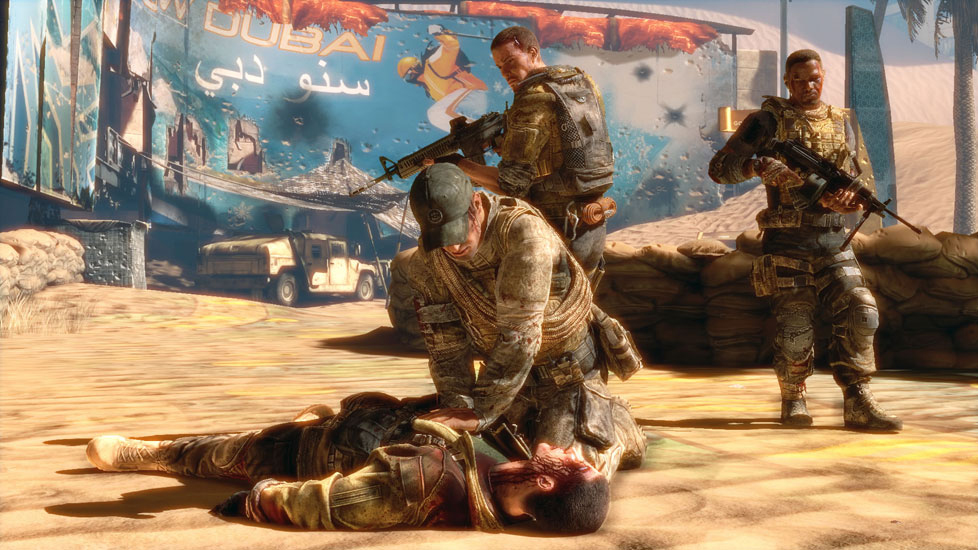
Spec Ops: The Line, released in 2012, stands as a unique and often underappreciated gem in the world of military-themed video games.
While it may not have gained the same level of commercial success as some of its contemporaries, it left an indelible mark on those who experienced its gripping narrative.
In particular, the ending of Spec Ops: The Line was a startling and thought-provoking surprise that challenged the conventions of the modern military shooter genre.
At first glance, Spec Ops: The Line appears to be a standard military shooter, set in the scorching sands of Dubai after a catastrophic sandstorm.
Players assume the role of Captain Martin Walker, who leads a Delta Force team on a mission to investigate the city and its rogue Colonel, John Konrad.
The narrative unfolds as players navigate through the ruins of Dubai, battling hostile forces and uncovering a dark and morally complex story.
As players progress, they are confronted with increasingly difficult moral choices.
The game does not shy away from illustrating the consequences of these choices, often forcing players to confront the horrific outcomes of their decisions.
This emphasis on moral ambiguity sets the stage for the game’s shocking conclusion.
The climax of Spec Ops: The Line takes place in a hotel, where Walker finally confronts Konrad.
In a stunning and unexpected twist, it is revealed that Konrad had been dead for some time, and Walker had been hallucinating his presence throughout the game.
The narrative then unravels into a disturbing revelation: Walker’s descent into madness and his unwavering determination to find and confront Konrad mirrored the player’s own descent into morally questionable decisions.
The surprise ending of Spec Ops: The Line serves as a scathing commentary on the dehumanizing effects of war and the player’s role in perpetuating violence within video games.
It challenges the player’s assumptions about heroism and the consequences of their actions.
The game forces players to question the morality of their choices and the ethical implications of their virtual violence.
What makes the ending of Spec Ops: The Line so surprising is its subversion of player expectations.
In a genre often characterized by bombastic action and clear-cut heroism, the game takes a sharp turn into dark and uncomfortable territory.
The realization that Walker’s journey was a descent into madness and moral decay shocked players who had expected a more conventional resolution.
Spec Ops: The Line left an enduring impact on players and the gaming industry as a whole.
Its willingness to confront the player with uncomfortable truths and its exploration of the psychological toll of war set a new standard for storytelling in military shooters.
It challenged the conventions of the genre and served as a reminder that video games can be a powerful medium for introspection and commentary.
Spec Ops: The Line is available to play on PlayStation 3, Xbox and PC.
Braid (2008):
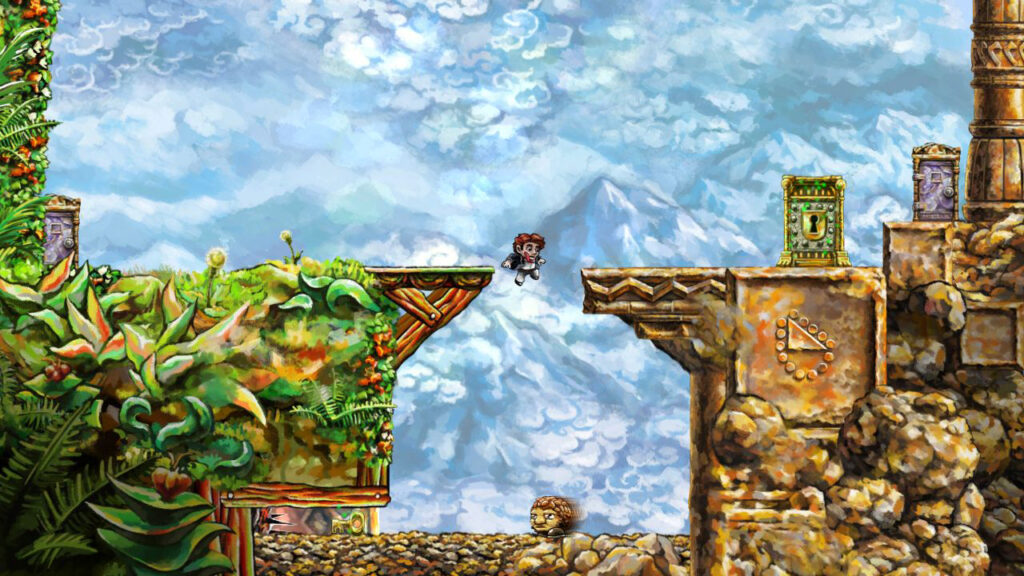
In the realm of independent video games, Braid holds a special place.
Developed by Jonathan Blow and released in 2008, it’s renowned for its elegant puzzle mechanics, captivating art, and, most notably, its thought-provoking narrative.
What truly set Braid apart, however, was its ending – a twist so unexpected and enigmatic that it left players pondering its meaning long after the credits rolled.
Braid is a puzzle-platformer that follows the journey of Tim, a protagonist on a quest to rescue a princess.
At first glance, it appears to be a whimsical and charming fairy tale.
Yet, as players progress through the game’s increasingly complex puzzles, they begin to realize that “Braid” is not what it seems.
The game’s central gameplay mechanic involves time manipulation, where players can rewind and fast-forward the game world to solve puzzles and navigate obstacles.
This mechanic, intricately woven into the game’s design, hints at the deeper narrative themes that would eventually come to fruition in the ending.
It is during the game’s final level, titled World 6, that the shocking revelation occurs.
As players collect the final puzzle pieces and complete the last stage, they are met with a surprising twist.
Instead of rescuing the princess, Tim inadvertently becomes the villain. It is revealed that he has been pursuing her for selfish reasons, and she has been trying to escape from him.
What made the ending of Braid so surprising was the emotional weight it carried.
Players were led to believe they were the heroic savior on a noble quest, only to discover that their actions had unintended and selfish consequences.
The game’s narrative made them complicit in Tim’s actions, forcing them to reevaluate their understanding of the character and their own motivations.
The true brilliance of Braid’s ending lies in its ambiguity.
The game does not spoon-feed players the meaning of the twist but instead encourages them to interpret it in their own way.
Some see it as a commentary on relationships and obsession, while others view it as an allegory for the creation of the atomic bomb.
Braid stands as a testament to the power of storytelling in video games.
Its ending was a surprising revelation that challenged players’ expectations, subverted traditional narrative structures, and encouraged critical thinking.
It reminded players that video games could be a medium for thought-provoking and emotionally resonant storytelling, transcending the boundaries of conventional game design.
The ending of Braid was a twist that took players by surprise and left them with a sense of wonder and contemplation.
It was a powerful example of how video games could use narrative subversion and ambiguity to deliver profound and lasting emotional impact.
Braid is available to play on Steam.
Nier: Automata (2017):
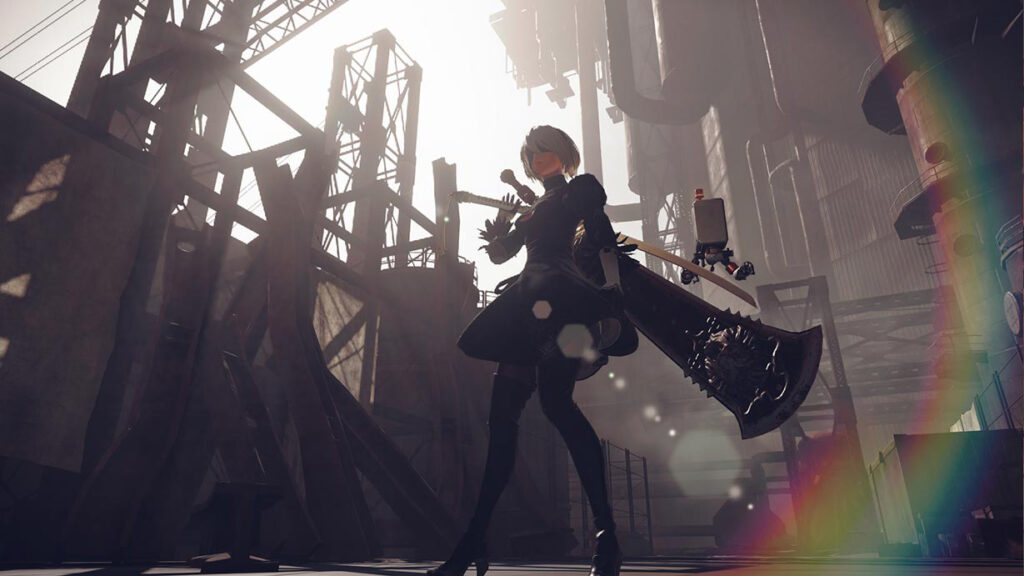
Released in 2017, Nier: Automata swiftly became a cult classic in the world of video games.
Developed by PlatinumGames and published by Square Enix, the game is renowned for its captivating narrative, profound philosophical themes, and, most significantly, its subversive and surprising endings.
Set in a post-apocalyptic future, Nier: Automata presents a world where humanity is on the brink of extinction, and Earth is ruled by sentient machines created by extraterrestrial invaders.
Players take on the roles of androids 2B, 9S, and A2, tasked with reclaiming Earth from the machine menace.
What makes Nier: Automata unique is its narrative structure.
It doesn’t just have one ending but multiple, and players must complete the game multiple times to uncover the full story.
The game’s clever narrative layering is part of what sets the stage for its surprising ending.
The first playthrough follows 2B’s perspective, offering a seemingly conventional narrative experience.
However, as players progress through the subsequent playthroughs as 9S and A2, they begin to piece together fragments of the larger narrative puzzle.
It is during the third playthrough that Nier: Automata begins its subversion in earnest.
The game challenges the player’s loyalty and emotional investment in the characters by forcing them to confront the realities of the world they inhabit.
This subversion of expectations is most evident in Endings A and B, which offer variations of the same tragic conclusion.
Yet, it is the game’s fourth playthrough, Ending C, that delivers the most significant shock.
Players are presented with a seemingly unwinnable scenario where they must choose between the survival of one of the main characters, 9S or A2.
Whichever choice the player makes results in a heart-wrenching outcome.
This ending is followed by Ending D, which, in an audacious move, presents players with a choice that involves sacrificing their own save data to help another player in the future.
This fourth wall-breaking decision, while surprising, also serves as a powerful metaphor for the themes of sacrifice and empathy that run through the game.
Nier: Automata doesn’t stop at mere narrative subversion.
It dives into deep philosophical and metaphysical territory, exploring questions of consciousness, identity, and the nature of humanity.
The game’s storytelling forces players to confront these themes in a way that goes beyond the typical boundaries of video game narratives.
The endings of Nier: Automata are not just surprising; they are emotionally resonant and thought-provoking.
They invite players to reflect on their actions, question the nature of humanity, and consider the consequences of their choices.
The game’s bold narrative choices have left a lasting impact, sparking countless discussions and analyses among fans and critics alike.
Nier: Automata is available to play on PlayStation, Switch and Steam.
The Last of Us (2013):
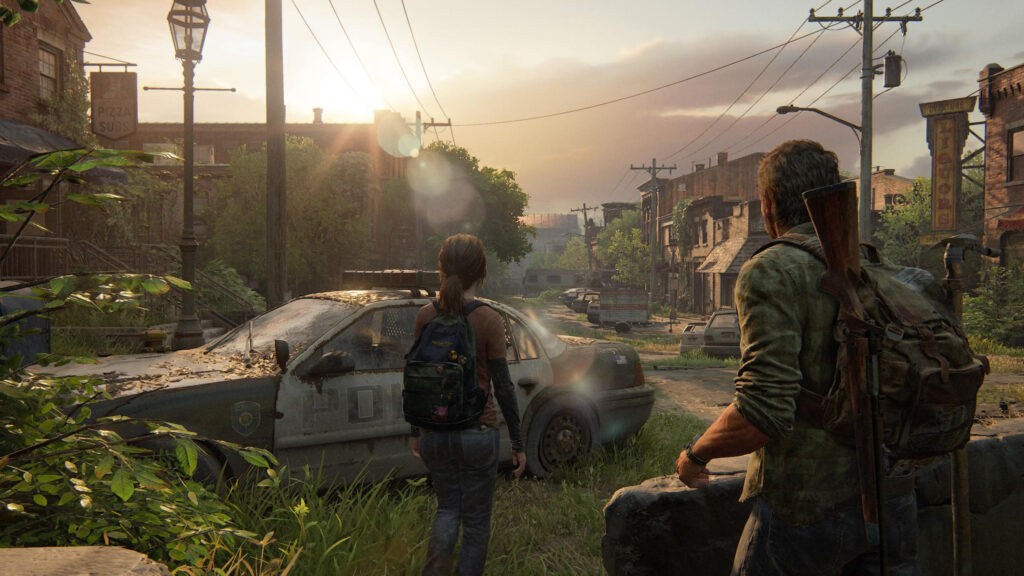
The Last of Us, developed by Naughty Dog and released in 2013, is widely acclaimed as a landmark in the world of video games, renowned for its masterful storytelling, rich characters, and evocative world-building.
Set in a post-apocalyptic world ravaged by a fungal infection that turns humans into savage creatures, The Last of Us follows the journey of Joel and Ellie as they navigate the desolation of the United States in search of a group known as the Fireflies, who may hold the key to finding a cure for the infection.
Throughout the game, players witness the development of a deep and complex relationship between Joel and Ellie. Joel, initially a reluctant guardian, gradually forms a paternal bond with Ellie as they face unimaginable challenges together.
Their journey is fraught with danger, loss, and moments of profound humanity.
As players invested hours into this emotionally charged journey, they became attached to Joel and Ellie and began to empathize with their struggles.
The game’s narrative masterfully elicited feelings of hope, despair, and even optimism in the face of seemingly insurmountable odds.
It is in the final act of the game that players encounter the surprising twist that would define the ending of The Last of Us.
After a series of harrowing events and confrontations, Joel and Ellie finally reach the Fireflies’ laboratory.
There, they discover that in order to create a vaccine, the Fireflies must extract the fungal infection from Ellie, a process that would ultimately result in her death.
This is where the narrative takes a dramatic turn.
In a shocking moment, Joel makes the life-altering decision to rescue Ellie from the Fireflies, killing those who try to stop him.
He lies to Ellie, telling her that there were many other immune people like her and that the Fireflies had given up hope of finding a cure.
Joel’s decision, driven by his paternal love for Ellie, was a morally complex and emotionally charged twist that players did not see coming.
What made the ending even more surprising was its ambiguity.
The game doesn’t explicitly portray Joel as a hero or a villain; rather, it leaves players to grapple with the moral implications of his actions.
Was he justified in saving Ellie, or did he doom humanity by depriving it of a potential cure?
The Last of Us was a game that invited players to engage in deep discussions about its ending and the ethical dilemmas it presented.
It was an ending that challenged players’ preconceived notions of heroism and sacrifice in a post-apocalyptic world.
The Last of Us is available to play on Playstation or Steam.
Conclusion:
In the world of video games, endings hold a unique power.
They are the culmination of a player’s journey, the culmination of choices made and obstacles overcome.
The seven surprise video game endings we’ve explored here are a testament to the medium’s unparalleled ability to surprise and challenge players on an emotional, intellectual, and even philosophical level.
From the mind-bending twists of BioShock and Metal Gear Solid 2: Sons of Liberty to the morally complex choices in The Last of Us and Spec Ops: The Line, these endings have left indelible marks on players, sparking debates, discussions, and contemplation long after the credits roll.
Braid introduced us to a world where time itself was a puzzle, while Nier: Automata dared to explore the metaphysical and the existential.
Red Dead Redemption immersed us in the Wild West only to shatter our expectations with its poignant conclusion.
These games have redefined what is possible in interactive storytelling.
They have pushed the boundaries of player agency, challenged conventional narrative structures, and asked profound questions about the nature of morality, choice, and the human condition.
In each of these titles, the endings serve as a reminder that video games are not merely a form of entertainment but a powerful medium for art and storytelling.
They can evoke genuine emotion, provoke deep thought, and create experiences that resonate long after the controller is set aside.
As gamers, we continue to eagerly anticipate the next surprise ending that will leave us breathless and questioning everything we thought we knew.

